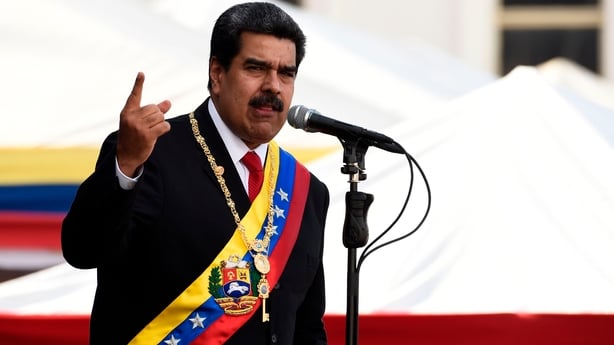EU foreign ministers have agreed to go ahead with sanctions on fou rsenior Russian officials in response to the jailing of Kremlin critic Alexei Navalny, two EU diplomats said, allowing preparations for listings to begin.
No names were discussed during the meeting of the 27 foreign ministers, but diplomats said Russia's head of the Investigative Committee, which handles probes into major crimes, the director of prisons, the director of Russia's National Guard and the prosecutor general were to be targeted
The foreign ministers are participating in talks including a wide-ranging videoconference with new US Secretary of State Antony Blinken.
However, it will be responses to a raft of abuses in various regions that will dominate, with Venezuelan authorities also in the crosshairs over widely-criticised elections last year.
The move to target the Kremlin comes two weeks after EU foreign policy chief Josep Borrell was caught in a diplomatic ambush in Moscow that enraged member states.
Capitals are eyeing using the EU's new human rights sanctions regime for the first time to hit individuals responsible for the clampdown with asset freezes and visa bans, diplomats said.
"I expect a political agreement to be reached," a senior European diplomat told AFP.
"Then experts from the member states should work on the names."
Late Sunday, two of Mr Navalny's closest allies met in Brussels with eight EU foreign ministers and several EU ambassadors ahead of Monday's meeting.
One of the allies, Leonid Volkov, told AFP they "talked about targeted personal sanctions against Putin's closest allies and people who are guilty of major human rights violations".
European diplomats say only those directly implicated in Russia's treatment of Mr Navalny can be targeted because the list needs to stand up to any challenge in court.
The meeting was organised by Lithuania, whose foreign minister, Gabrielius Landsbergis, did not identify the other EU participants.
"The biggest hope for [today] is that we will make a unanimous decision about the list" of people to be sanctioned, Mr Landsbergis told AFP.
The mood towards Moscow has hardened in the wake of Mr Borrell's disastrous trip to Russia, during which Moscow announced the expulsion of three European diplomats and rebuffed talk of cooperation.
The EU has already hit Russia with waves of sanctions over the 2014 annexation of Crimea and Moscow's fuelling of the war in Ukraine.
In October, the EU put six officials on a blacklist over the poisoning of Mr Navalny with Novichok, a nerve agent.
Russian President Vladimir Putin's most prominent domestic critic was this month jailed for almost three years after returning to Russia following treatment in Germany.
His sentencing sparked nationwide protests that saw baton-wielding security forces detain thousands.
The EU also appears to be gearing up to hit Myanmar's military with targeted punishment after it seized power this month and launched an increasingly deadly bid to crush protests.
Mr Borrell condemned the violence against peaceful rallies after two demonstrators were killed and said EU foreign ministers would "take appropriate decisions".
A senior EU official said today's meeting would adopt conclusions that "foresee maybe to take some particular measures on some of the members of the military".
Meanwhile, UN chief Antonio Guterres spoke out against the "brutal force" used by those behind Myanmar's coup and urged the military to immediately halt the repression and release prisoners.
"Today, I call on the Myanmar military to stop the repression immediately. Release the prisoners. End the violence. Respect human rights, and the will of the people expressed in recent elections," Mr Guterres told the UN Human Rights Council in a pre-recorded video message.

In addition, the EU official said ministers were expected to place some 30 members of Venezuelan President Nicolas Maduro's regime on a blacklist.
The listings would target those involved in December elections the EU refused to recognise and broader human rights abuses, the official said.
Ministers are also set to discuss China's crackdown on Hong Kong and see if the EU needs to beef up its response as Beijing tightens it grip.
The focus will pivot to cooperation when America's top diplomat Mr Blinken joins for his first full talks with the bloc, with all sides looking to put the tension of the Trump era behind them.
The discussion looks likely to range from a joint approach to common adversaries such as Russia and China to the pressing issue of trying to bring the US back into the Iran deal.
The EU is currently looking to broker a meeting between Washington, Tehran and other signatories, including Russia, to try to work out how to salvage the accord after former US president Donald Trump quit it in 2018.

